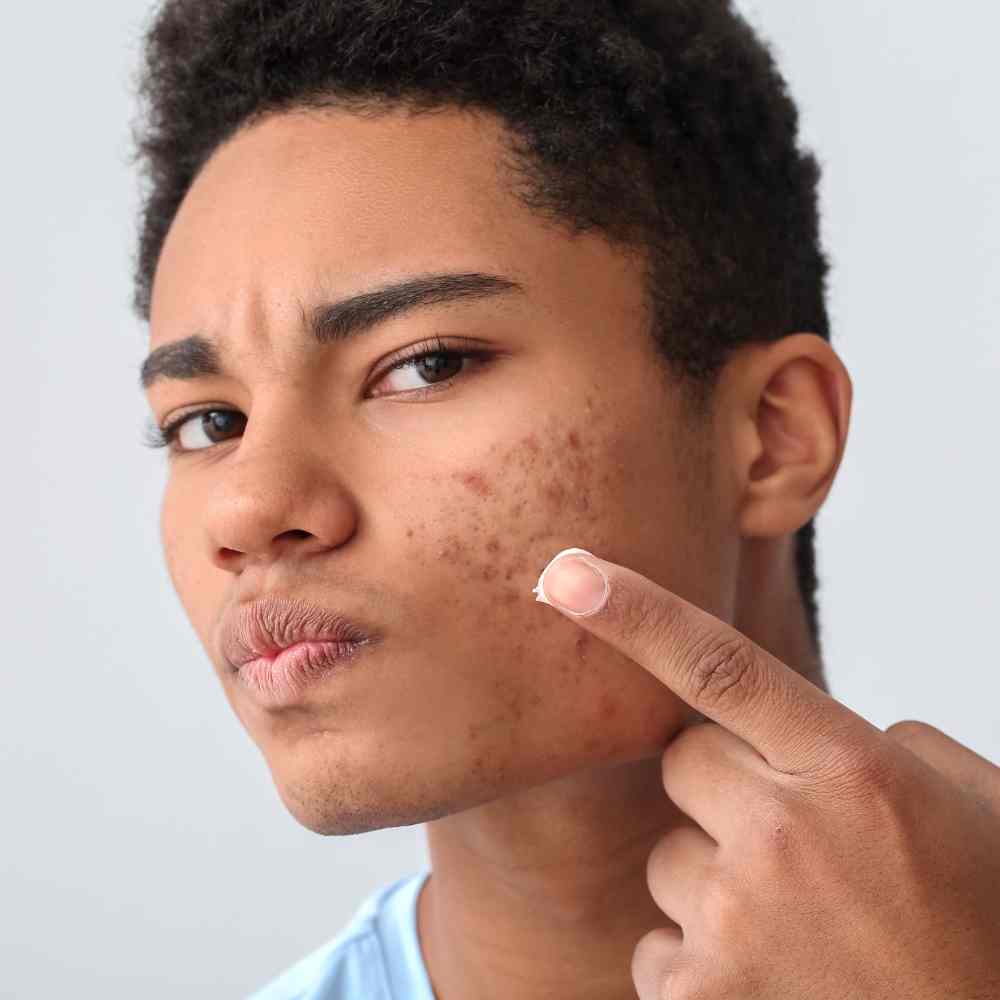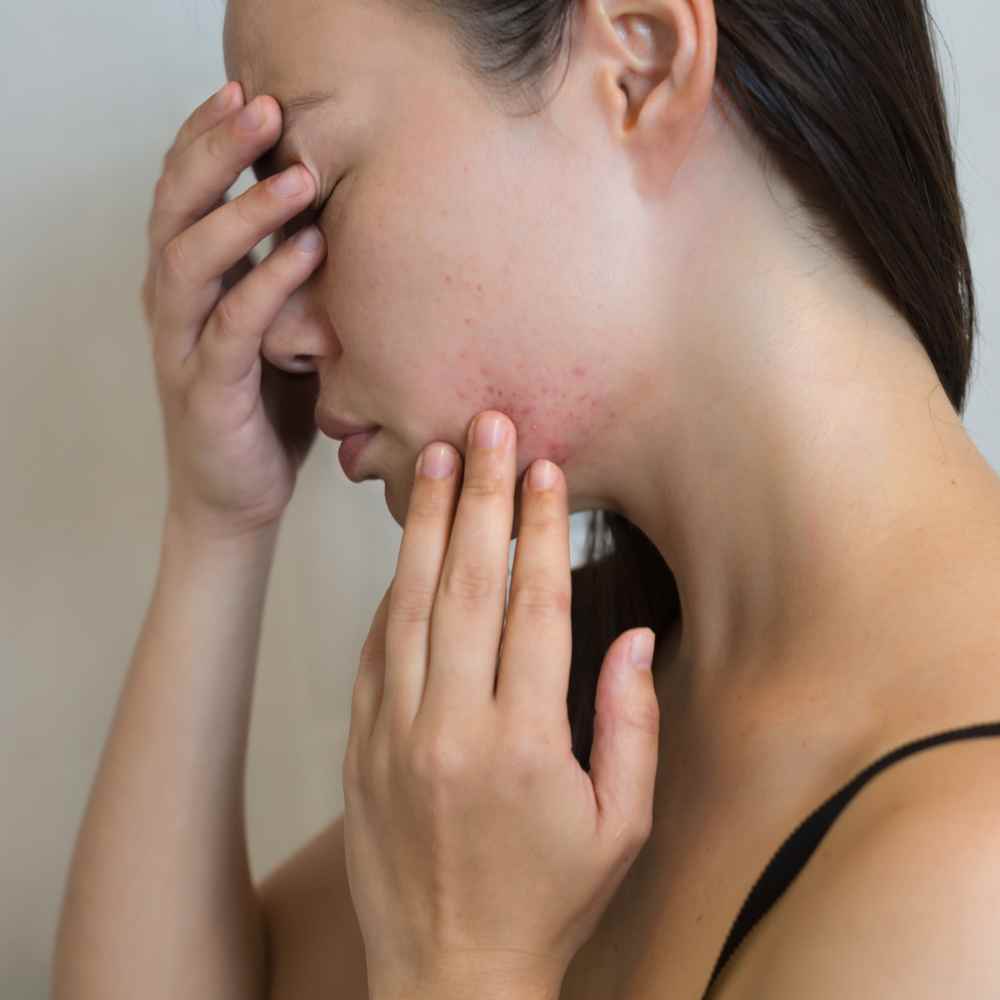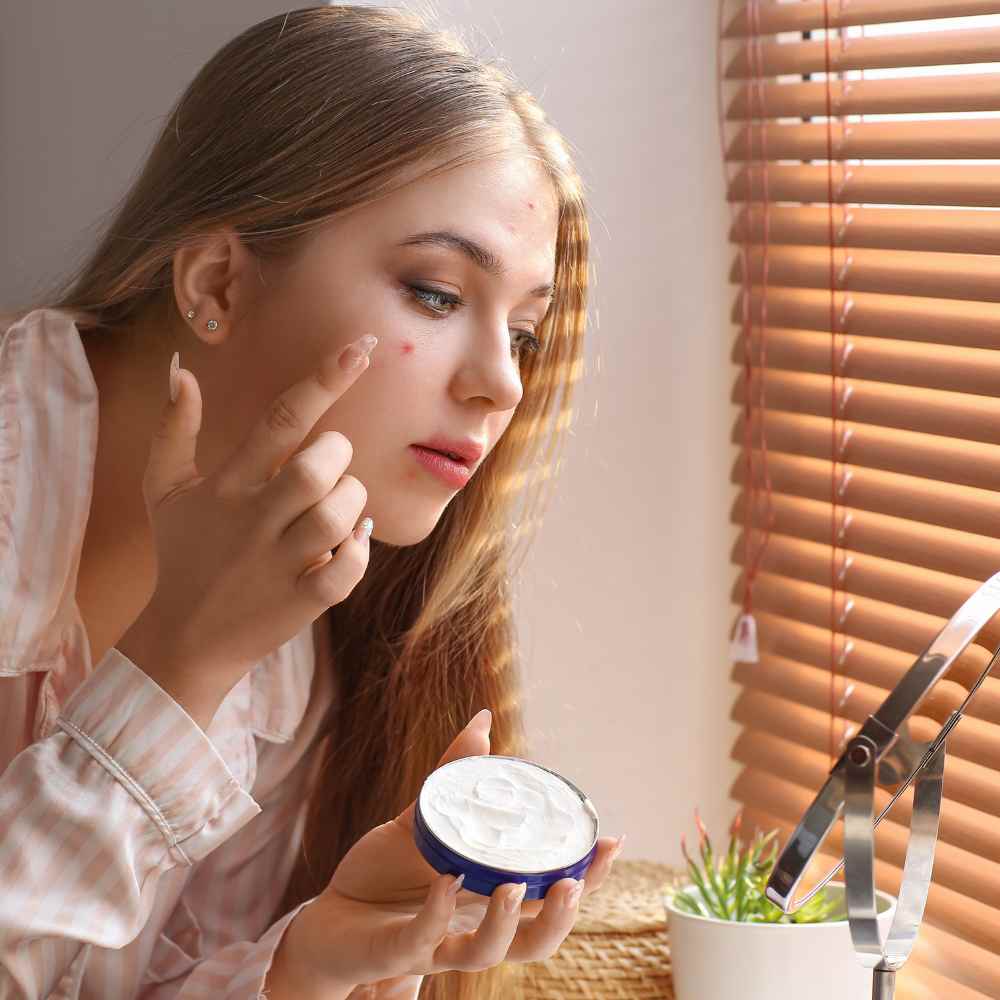
When Your Acne Itches Does That Mean It's Healing?
Picture this: You're minding your own business, going about your day, when suddenly that pesky pimple on your face starts itching like crazy. What does it mean?
Is it a sign that your skin is on the path to recovery? Well, buckle up, skincare enthusiasts, because we're about to embark on a journey to decode the mysterious world of itchy acne.
Get ready to scratch the surface of this intriguing topic and uncover the truth behind that irresistible urge to scratch. But first, what's causing your acne in the first place?

What's Causing Your Acne?
Ah, acne. The bane of many teenagers worldwide (and some adults, too)! To start, let's go over what causes this annoying skin condition.
First and foremost, oil production plays a major role in the formation of acne.
When there is too much sebum (oil) being produced by your skin cells, it can cause a “blockage” and can clog up your pores.
This blockage leads to the growth of bacteria known as “propionibacterium acnes” which then triggers your body’s inflammatory response leading to the redness and swelling associated with acne.
In addition to oil production, hormones are also linked to an increase in acne breakouts as natural fluctuations in hormone levels during puberty or pregnancy can cause changes in our bodies that lead to pimples appearing on our faces.
Unfortunately if you have a family history of hormonal imbalances you may be more predisposed for developing this form of acne..
Finally diet can be another factor contributing to recurrent breakouts! Foods that contain high amounts of sugar and carbohydrates are often converted into oils which then lead to more blemishes showing up on our faces since they enhance the existing issue caused by increased sebum production -so watch out for those sugar cravings!
All these factors combined make understanding why we get pimples difficult – but with knowledge comes power. Now you know what possible combinations could trigger affecting breakouts so start paying attention.
Take preventative measures like using medicated pore cleansers twice daily and use a spot treatment product made especially for acne.

Does Acne Itch When It's Healing?
Ah, the itchiness that comes along with acne. It can be frustrating, annoying, and make you want to tear your hair out. But here's the million-dollar question: Does an itchy pimple mean it's healing?
The short answer is...maybe. Yes, folks, that itchiness can indeed be a sign that your skin is doing its thing to repair and heal itself. It's like a secret code whispered by your skin cells, telling you that better days are ahead.
The Body's SOS Signal
When your pimple starts to itch, it's your body's way of sending an SOS signal. It's like your skin's own smoke alarm, alerting you that something is happening beneath the surface.
As your immune system kicks into gear to fight off the acne-causing bacteria, inflammatory responses are triggered, leading to that irritating itch. It's your skin's way of saying, "Hold on, we're working on it!"
The Sweet Relief of Not Scratching
As tempting as it may be, resist the urge to scratch that itchy pimple. Scratching can cause further irritation, damage the skin's protective barrier, and potentially introduce more bacteria to the area.
It's like playing with fire while trying to put it out. Instead, try soothing remedies like applying a cold compress or using calming skincare products to relieve the itch.
You can also apply a pimple patch to especially itchy areas so you can't scratch and pick at your pimple.
The Healing Dance of Inflammation
Inflammation plays a crucial role in the healing process. When your pimple itches, it's a sign that your body's inflammatory response is in full swing.
The immune system sends white blood cells to the affected area, combating bacteria and repairing damaged tissues.
So, that itch you feel? It's like the rhythm of a healing dance, indicating that your body is fighting the good fight against acne.
Patience, Grasshopper
While itchy acne can be a sign of healing, it's important to remember that everyone's skin is unique.
The healing process varies from person to person, so patience is key. It's like waiting for the next season of your favorite TV show to drop. It may take some time, but the payoff will be worth it.
So, resist the urge to pop, pick, or scratch, and let your skin do its thing at its own pace.

The Power of Skincare Allies
Now, let's talk about the power of skincare allies. Incorporating effective acne-fighting products into your routine can help speed up the healing process and minimize itchiness.
Ingredients like salicylic acid, tea tree oil, or benzoyl peroxide can work wonders in combating acne-causing bacteria and soothing inflammation.
And don't forget the moisturizer. Acne treatment products can be very drying. Be sure to follow them with a non-comedogenic moisturizer that won't clog pores.
It's like having a squad of superheroes on your side, fighting the itch-inducing villains!
When to Seek Professional Help
While itchy acne is often a sign of healing, there are instances when it's best to seek professional help.
If the itchiness persists or worsens, or if you experience severe discomfort, it's time to consult a dermatologist.
They're the experts who can provide personalized advice and treatment options to ensure your skin is on the path to a healthy recovery. Remember, superheroes need backup sometimes too!
The Itchy Acne Journey
In the grand scheme of things, itchy acne is just a part of the journey towards healthier skin. It's a reminder that the healing process is underway, and better days are on the horizon.
So, embrace the itch (not literally), resist the urge to scratch, and trust that your skin knows what it's doing. It's like embarking on a thrilling adventure, with a reward waiting for you at the end—clear, beautiful skin.
When Itching is a Good Thing
All in all, when it comes to itchy acne, there's no need to be concerned—it can be a positive sign that your skin is healing!
Skincare is personal, and everyone's journey is different; embrace the itch and trust that clearer, happier skin lies ahead.
Get comfortable with moisturizing and skincare routes, reinforce them with gentle ingredients that prevent further irritation, like aloe vera or chamomile tea.
And if the itchiness persists or gets worse, reach out for help from a professional who can give you advice tailored to your individual needs.
So don't let chronic itches leave you scratching your head—choose the proactive route of embracing the itch and making sure skin stays soft and hydrated!

















